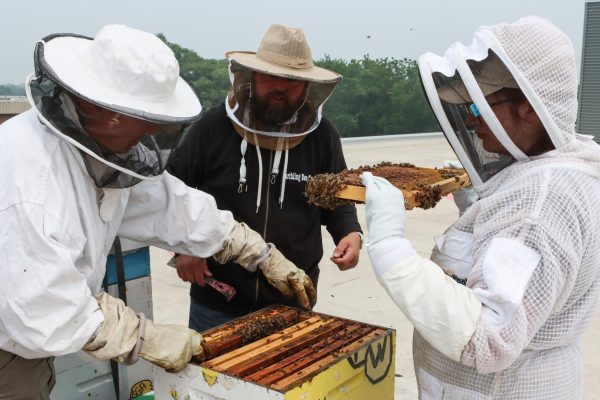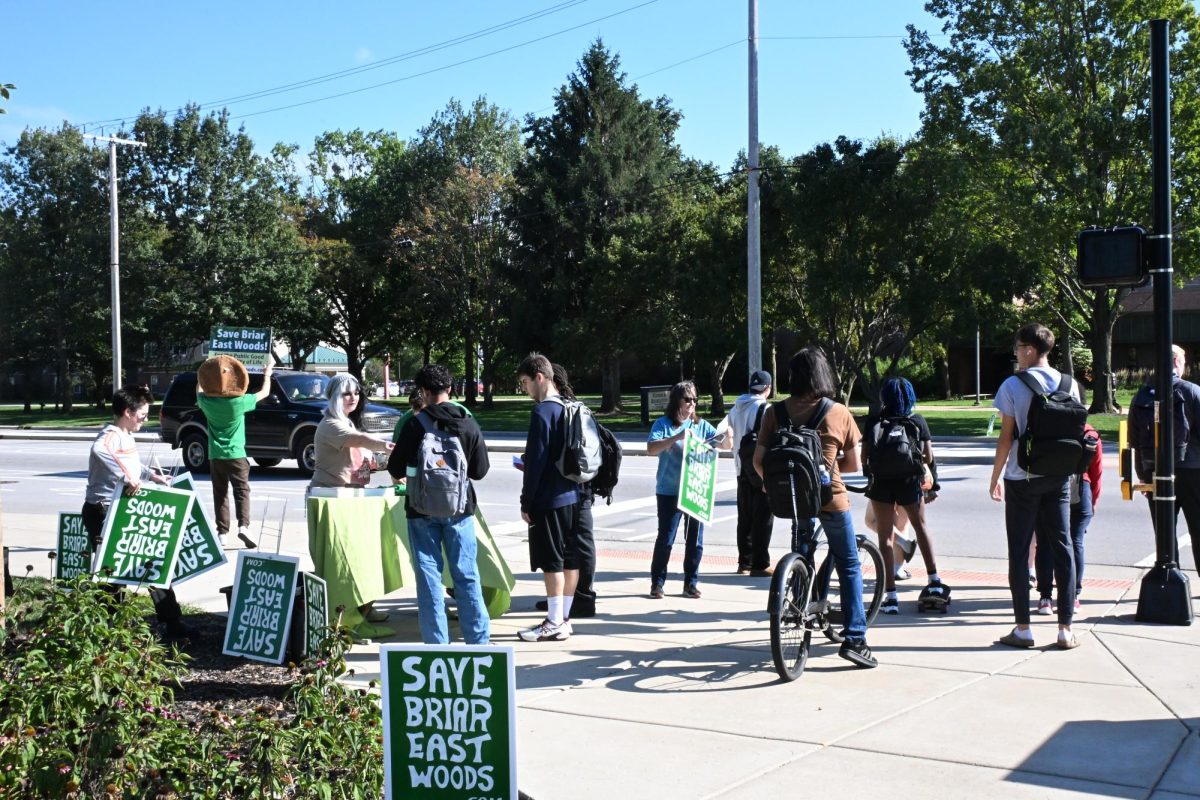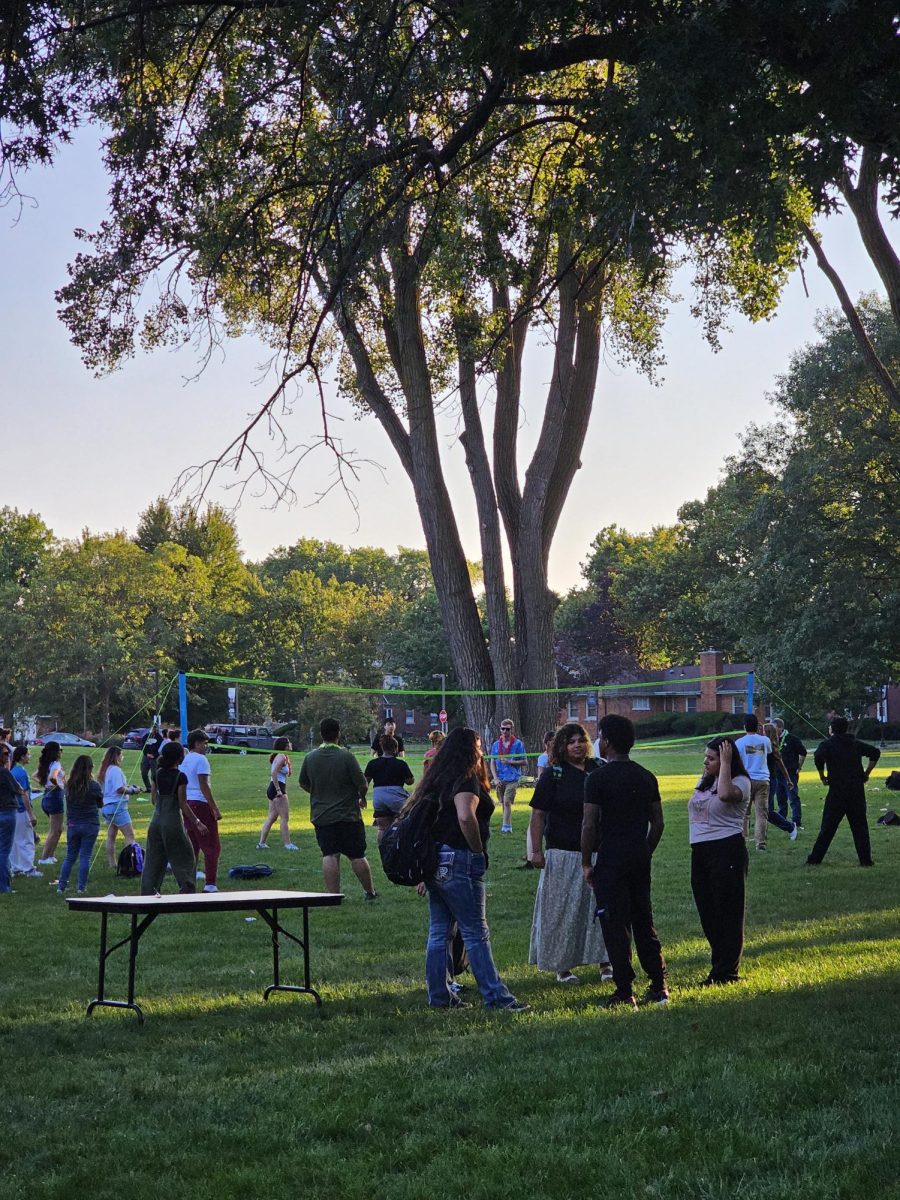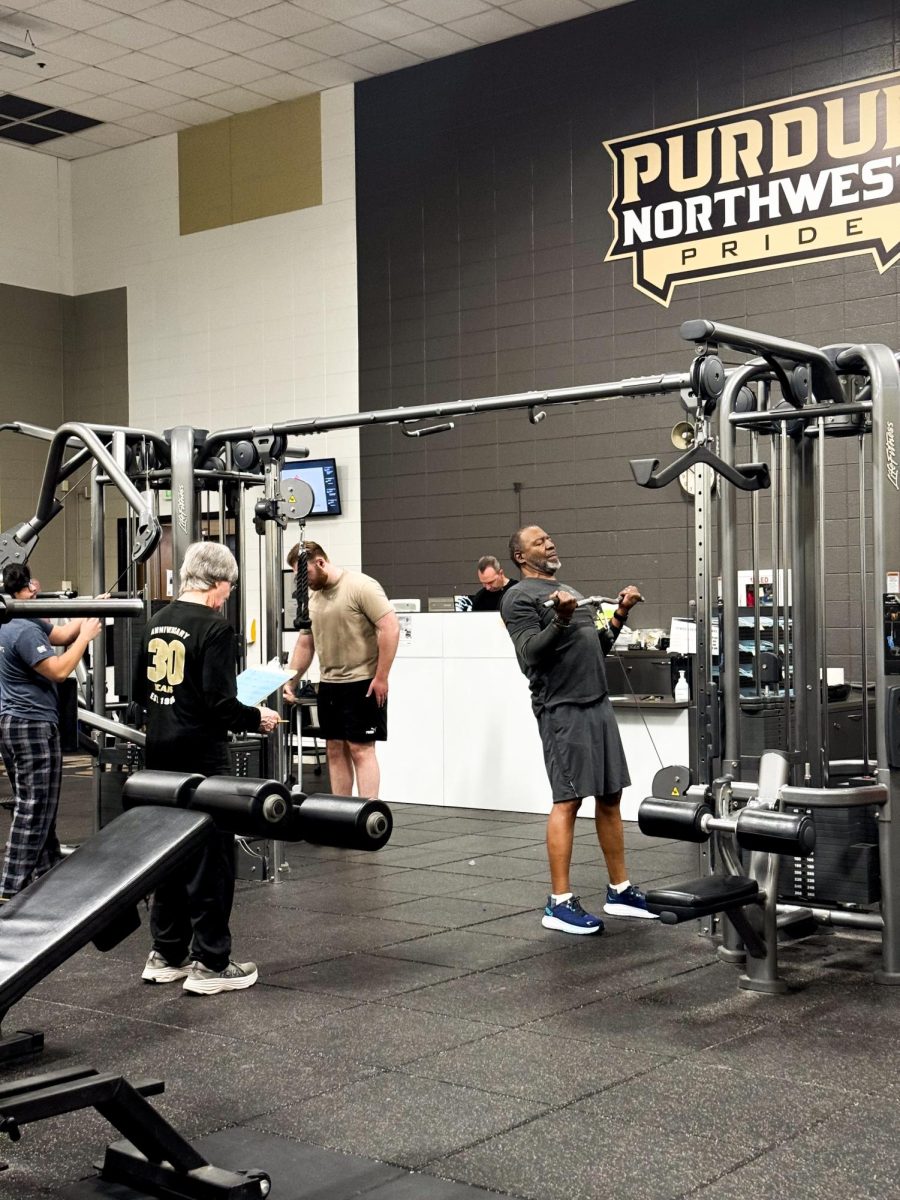
John Bachmann is busier than a bee managing the university’s beehives.
Officially PNW’s Grounds and Landscape manager, Bachman is PNW’s bee boss, responsible for the 11 hives located on the Hammond and Westville campuses and at Gabis Arboretum.
Work on the university’s hives must be done year-round.
Bachmann has to make sure there are no unwanted guests in the hives. He and his assistant routinely check for varroa mites, which can kill off a hive. He said hives are treated for mites three times a year – winter, spring and fall.
He is also on guard for hive beetles and wax moths.
Every two or three weeks, Bachmann checks on honey production, the bees’s general health and how much brood is being produced. Brood includes honeybees’ eggs, larvae and pupae. A hive with brood in all stages means the queen bee is working well and the colony is replenishing dying bees. If there is a small amount of brood, the hive will produce less honey.
But with all this routine checking, Bachmann said beekeepers need to be careful.
“Whenever you go into the hive [you try] to not smash the queen because it takes a month to get another,” he said.
Plus, there is the threat of getting stung.
Bachmann wears special “sting gloves” that protect him. He uses smoke to get rid of the pheromones that bees use to communicate. Plus, he said a beekeeper always “talks to the girls and sings to them to get [them] used to his voice and smell,” reducing the likelihood of bee stings.
“Bees are hard to work with,” Bachmann said.
He and a student volunteer, working with Earthling Bee Company in Griffith, have completed this year’s harvest of what will soon be packaged as Gold Pride Honey.
Bachman said volunteers from the Honors College will put the honey in jars. A share of the honey is also packaged by Earthling. Chancellor Kenneth C. Holford gets a supply of the packaged honey, which he can use as gifts.
After all the honey is harvested and cool weather sets in Bachmann and Nicky Jones, owner of Earthling Bee Company, will get the hives ready for winter. They will remove empty supers or boxes that make up each hive. They will also make sure the bees have enough food to survive the winter. Then each hive must be wrapped to protect against wind.
When the temperature drops, worker bees will gather into a ball in the middle of the hive, surrounding the queen and her brood. By squeezing together they will rapidly vibrate their muscles to keep the hive warm during the winter.





